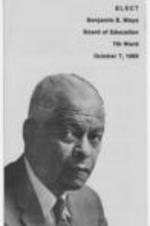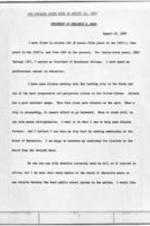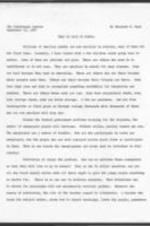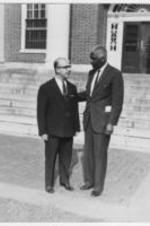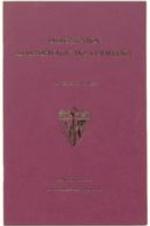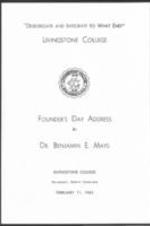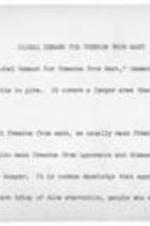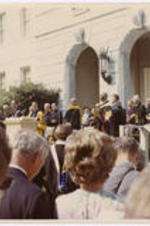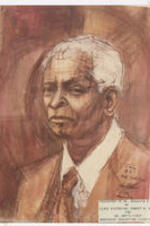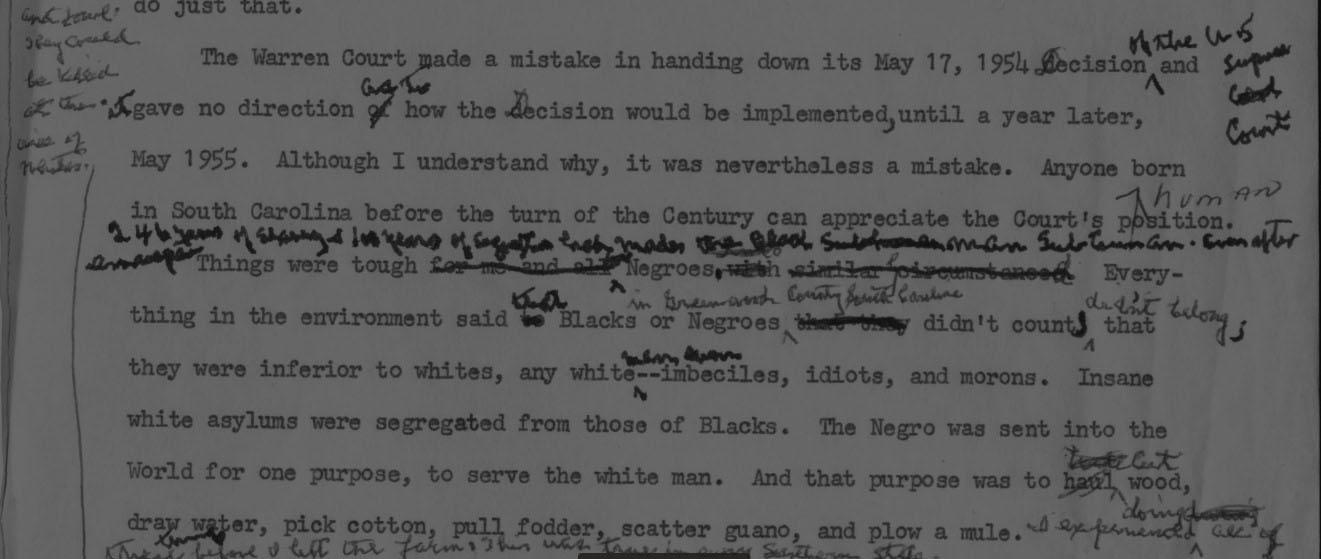
Benjamin E. Mays Papers
Benjamin Elijah Mays was born August 1, 1894 in Ninety Six, South Carolina. After graduating high school, he spent one year at Virginia Union University before moving to Maine to attend Bates College, where he received his BA. He then went to the University of Chicago for his M.A. and his Ph.D. While at the University of Chicago, Mays worked as a Pullman Porter and a student assistant to Dr. Lacey Kirk Williams, pastor of Olivet Baptist Church. While finishing his doctorate, Mays published The Negro's Church, the first sociological study on the Black church, with Joseph Nicholson. He became dean of the School of Religion at Howard University in 1934. In 1940, Mays moved to Atlanta to become the president of Morehouse College. Martin Luther King Jr. was Mays' most famous student at Morehouse. The two remained close until King's death in 1968 and Mays delivered the eulogy at his funeral. Mays left Morehouse College in 1967. In 1969, Mays ran for the Atlanta Public Schools Board of Education. While on the board, Mays oversaw the peaceful desegregation of the Atlanta Public Schools. He served on the board until 1981, and served as the president of the board between 1970 and 1981.
At the AUC Robert W. Woodruff Library we are always striving to improve our digital collections. We welcome additional information about people, places, or events depicted in any of the works in this collection. To submit information, please contact us at DSD@auctr.edu.

![Benjamin E. Mays and others at an APCUG Higher Education Awards Banquet. Written on verso: APCUG Higher Education Awards Banquet, Stouffer's Atlanta [?], 7 p.m. March 26, 1973, L to R: President Waights Henry, Lagrange College, Dr. Benjamin E. Mays, Mayor Sam Massell. Benjamin E. Mays attends APUCG High Education Banquet.](https://radar.auctr.edu/sites/default/files/styles/list_card_image/public/externals/ef8982b16d96b06d89167093a471633d.jpg?itok=ckdOeuTl&pid=auc.100:0015&iic=true)
